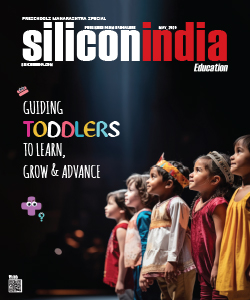India Opposes External Oversight on SDGs
UNITED NATIONS: Asserting that the onus of global sustainability cannot be placed on developing countries alone, India has said that sovereign countries should not be subjected to external oversight mechanism to measure their progress in achieving sustainable development goals.
"Every country faces specific challenges to achieve sustainable development and may follow different approaches, visions, models and tools, in accordance with the national circumstances and priorities.
"So I feel no sovereign country should be subjected to external oversight mechanism or benchmark with regard to progress on these goals," Lok Sabha Speaker Sumitra Mahajan said in her address to the Fourth World Conference of Speakers of Parliament yesterday.
Addressing the high-level gathering of Speakers of Parliament from across the world, Mahajan stressed that the "onus" of global sustainability cannot be placed on developing countries alone and developed countries must lead by example.
"A global common approach to sustainability demands that developed countries, which bear the historical responsibility for climate change and have better financial and technological resources, must lead by example.
"Therefore a strong global partnership is needed to support the efforts of developing countries in the spirit of 'Vasudhaiva Kutumbakam' (the entire world is a family) and like interdependence in a family, all must share the responsibility according to individual capacity and capability," she said in her address titled 'Placing Democracy at the Service of Peace and Sustainable Development, Building the World the People Want'.
She said while nations aspire to live in a world that is peaceful, provides equality, human rights and dignity of labour and is free from discrimination, poverty and hunger, the question must be asked how democracy can deliver effectively to promote peace and sustainable development.
"We must empower democracy by ensuring that it is participatory and inclusive to make a difference in the lives of vulnerable sections of society," she said noting that one of the Sustainable Development Goals seeks to provide access to justice for all and build effective, accountable and inclusive institutions at all levels.
Mahajan further said that good governance is an enabler for development.
"Inclusive participation together with good governance will promote peace and sustainable development," she said.
She added that the post-2015 development agenda clearly emphasises ending poverty and hunger, ensuring gender equality, empowerment of women and girls and reducing inequality within and among countries.
Highlighting India's vision of development, Mahajan said the focus of the country's development is on inclusive growth to ensure that no one is left out in development process.
"We have the mission 'Sabka Sath, Sabka Vikas' (which) means participation of all and development for all," she said.
Citing the example of inclusive growth, Mahajan pointed out that at the call of Prime Minister Narendra Modi, millions of well-to-do people voluntarily surrendered subsidy on LPG to help the poor.
"In the end, we need to strike balance between our need and greed. A world without poverty or hunger is safer, better and fairer. Sustainable development means where human and nature co-exist in productive harmony. Environment and development is not either/or it is in fact both/and.
"We must ask ourselves is our future sustainable with present development. I think modern technology owes an apology to our ecology," she said.
With speakers of parliament meeting at United Nations Headquarters at a moment when the world is gripped by multiple crises, UN chief Ban Ki-moon urged the legislators to help drive forward the new UN sustainable development agenda and ensure that civil society are equal partners in "building the future we want".
"We are being challenged to strengthen our collective resolve to promote peace and security, sustainable development and human rights around the world," Ban said.
The global parliamentary summit is held every five years.
The current meeting will run through September 2.
In his remarks, the Secretary-General said that the 17 Sustainable Development Goals that form the basis of the new UN agenda are people-centred and planet-sensitive.
They provide a plan of action for ending poverty and hunger, and a roadmap for building a life of dignity for all and they promise to "leave no one behind".
General Assembly President Kutesa said given their role as pillars of democratic governance, parliaments will have an important role in the implementation of the new development agenda.
"Parliamentarians should continue to ensure that the voices of the people are heard and included in the development process. This will enhance ownership of the new agenda and its implementation on the ground, which will be vital for its success," he said.
Also Read:
India Advocates More Female Participation In Parliamentary Committees
Four Indians In The List Of Top 35 Innovators: MIT Technology

.jpg)

.jpg)